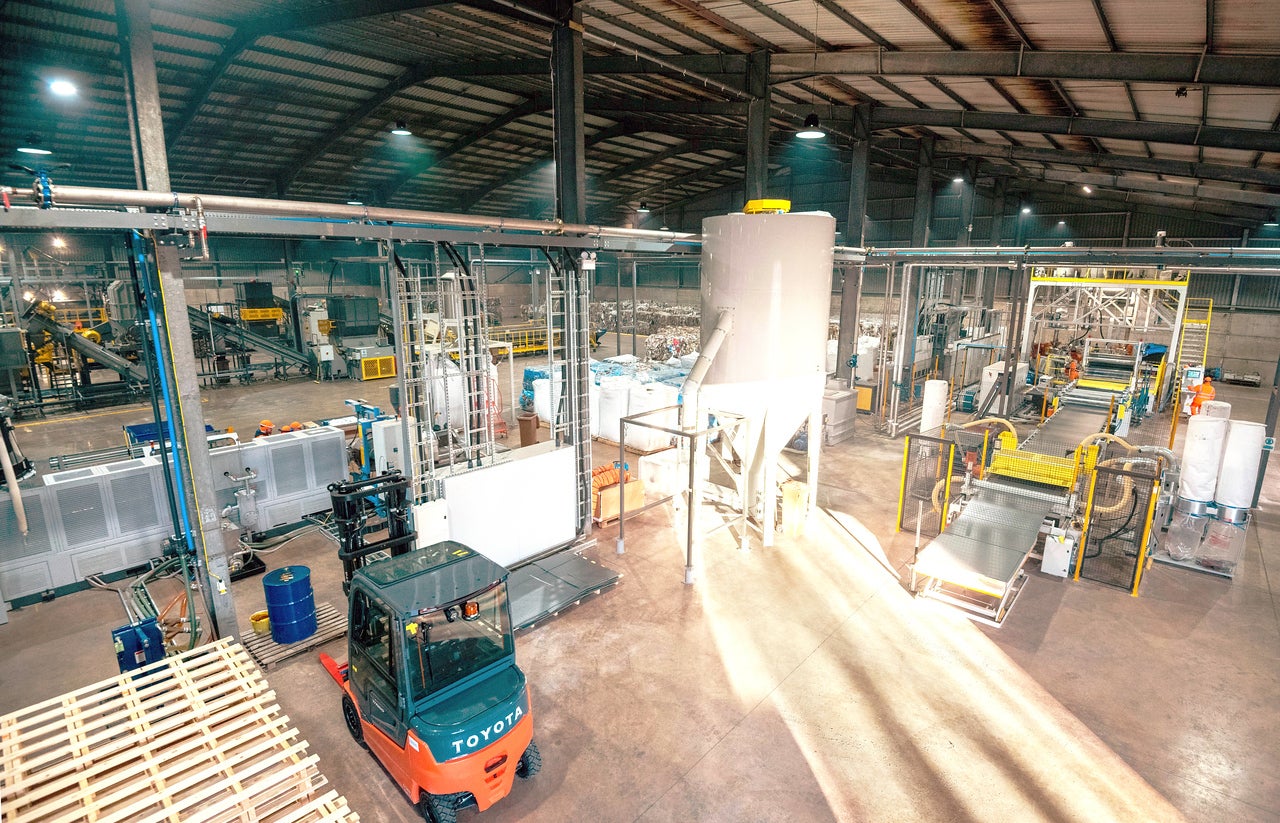
A new site co-owned by supermarket chain Morrisons opened in Fife, Scotland today (28 February) which is said to be able to process ‘hard-to-recycle’ soft plastics.
The new recycling plant uses patented technology that can turn hard-to-recycle flexible food packaging into plastic flakes, pellets and new Ecosheets, which can be used widely across different industries, such as construction and agriculture. At full capacity, the site is expected to recycle 15,000 tonnes of post-consumer plastic packaging a year.
A number of organisations, including Nestlé UK & Ireland and Zero Waste Scotland, were involved in the development of the plant and it will be run by recycling plant specialists, Yes Recycling.
Yes Recycling co-owner, Omer Kutluoglu, said the UK was in urgent need of more plastic recycling capacity and a means of recycling the so-called ‘hard-to-recycle’ plastic waste such as flexible food packaging.
“Our new ‘next-generation’ recycling plant, which we’ve developed over the last seven years, is designed to tackle exactly these materials. It is a blueprint for the future and will help to kick-start the UK’s plastics recycling industry. It will mean we can keep plastic in our own country’s ‘circular economy’ and out of our seas and oceans,” said Kutluoglu.
The view that investment in the recycling infrastructure is needed was shared by many packaging industry professionals at the Packaging Innovations and Empack show in Birmingham earlier this month.
Operations Manager at UK recycling compliance company, Lucy Drake-Lee told Packaging Gateway exclusively: that one of the biggest opportunities is ensuring that infrastructure is set up for the new way of dealing with waste.
She added: “At the moment we are set up with a system as it has been for years and years and we need to invest in new infrastructure to make it viable to recycle some of the new material we need to recycle, but also deal with materials and formats we’ve not previously dealt with.”
Business development manager at greek plastic packaging provider Lairplast, Nektarios Papanikolaou, told Packaging Gateway he believes governments and the EU should invest more in recycling infrastructures and in educating the public on how to dispose of waste correctly rather than proposing alternative solutions.
“People should know that sugar cane is four times more expensive. Why should people spend more when we already have the solution? Instead, governments tend not to invest money in infrastructure, on recycling, on compostability centres but instead try to collect more taxes because people still wish to use plastic,” said Papanikolaou
“We’ve done a significant amount of work to reduce our plastic use and now we want to help build a UK infrastructure to recycle the plastic that we may still need to use. By recycling these problematic plastics here in the UK we can give them a new life,” said procurement director at Morrisons, Jamie Winter.
Meanwhile, Zero Waste Scotland’s recycling improvement fund manager David Gunn added: “Zero Waste Scotland has been supporting local authorities through the Recycling Improvement Fund, which helps councils to enhance and invest in their recycling and reuse services.” He continued: “It’s great to see Fife Council using this support to enable householders to recycle soft plastic by upgrading CIRECO’s material recycling facility. This will significantly enhance the local authority’s ability to deal with ‘hard-to-recycle’ plastics that would otherwise be exported overseas.
“Instead, the separated soft plastics are now supplied to Yes Recycling for processing into Ecosheet, transforming what would have been waste into a highly useful and sustainable product – a fantastic example of a circular economy at work.”



